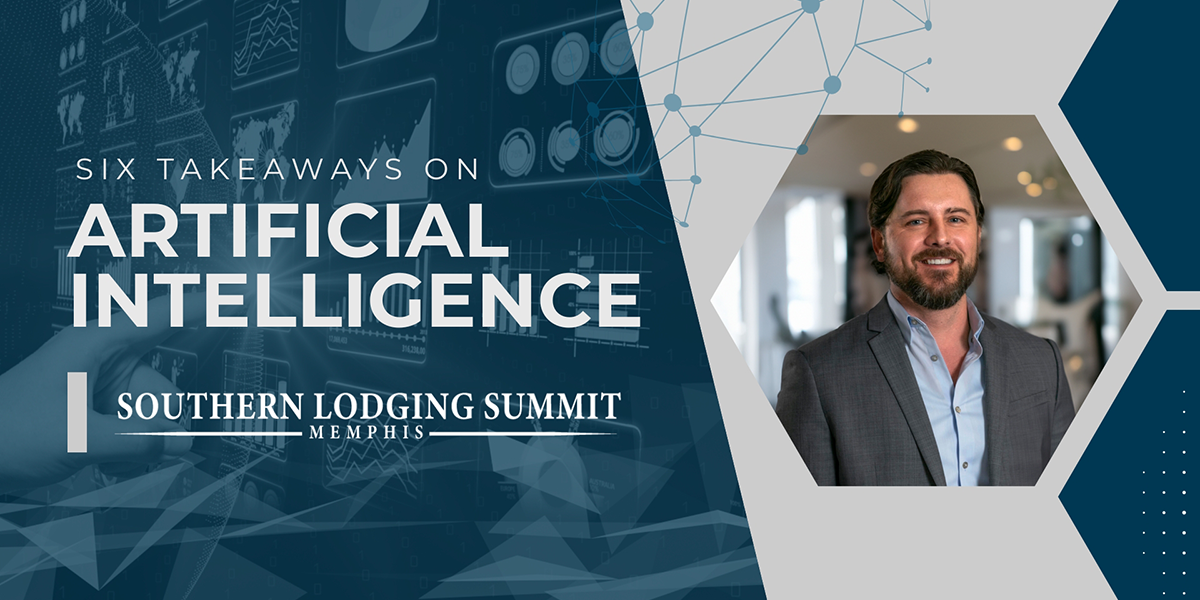Six Takeaways on AI from the Southern Lodging Summit

At this year’s Southern Lodging Summit in Memphis, I had the opportunity to serve on a panel discussing one of the most important topics shaping our industry today: artificial intelligence. The conversation touched on opportunities, challenges, and common misconceptions.
Rather than focus on speculation, I shared some practical perspectives from the front lines of hospitality management. Here are six takeaways from the panel that I believe owners and operators should keep in mind as they consider AI adoption.
AI Can Transform Recruiting
While guest-facing applications get the most attention, one of the most immediate returns is in HR. AI can analyze resumes, match candidates to job descriptions, and even apply behavioral science to assess cultural fit. Better hires, less turnover, and stronger teams are tangible outcomes that impact the bottom line.
Flexibility Is the Real Advantage
Markets turn quickly, and the ability to scale up or down without long recruiting and training cycles is invaluable. At Brittain Resorts & Hotels, we are piloting AI in our call center. In its first phase, AI helps agents by gathering guest information before handing it off to a live representative. Future phases will expand to changes and even full reservations. The goal is not replacement, it is flexibility and cost efficiency.
Guest Experience Does Not Always Mean Human Interaction
It is natural to equate hospitality with personal interaction, but technology already reshaped that dynamic years ago. Think of how websites replaced travel agents. Often, guest satisfaction comes from avoiding friction in the first place, not from resolving errors after they occur. AI should be viewed as a tool to deliver smoother, more reliable experiences, while also freeing up staff to focus on the moments that truly require a human touch.
Adopt with Discipline, Not Hype
One of the most common mistakes is rushing into every product labeled AI. Our industry has seen this before. QR codes were once everywhere, even on highway billboards. Every technology has its place, but careful evaluation is critical. Owners should choose solutions that fit their business model and integrate them thoughtfully, rather than collecting tools that do not add measurable value.
AI Is a Tool, Not a Replacement… Yet
The fear that AI will eliminate jobs overnight is overstated. Some roles will evolve, and certain tasks may be automated, but the transition will take time. The real risk is not being replaced by AI, it is being replaced by someone who learns how to use it more effectively. Leaders should see AI as a tool to enhance their teams, not diminish them.
On Security: The Sword and the Shield
AI will play a dual role in data security: exploited to attack systems and deployed to defend them. That reality raises the stakes for every hotel group. Strong data governance, constant monitoring, and clear protocols remain the foundation of protecting guest trust, especially as both threats and defenses become increasingly powered by AI.
Closing Thought
The AI conversation in hospitality is often filled with extremes, either fear of job loss or promises of instant transformation. The reality is more nuanced. By approaching AI with discipline, focusing on real operational gains, and keeping the guest experience at the center, owners and operators can make technology work for them today while preparing for the future.

